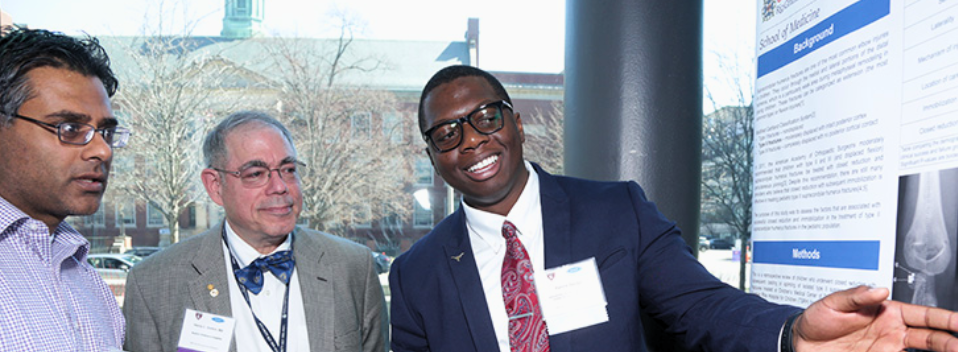
MEDI 9331 Scholarly Activities Clinical Years
Document Type
Article
Publication Date
3-1-2022
Abstract
Background: Adverse childhood experiences (ACEs) represent certain types of childhood trauma that are associated with long-term negative effects on health and wellbeing. The elevated number of ACEs can lead to depression, suicidality, alcoholism, and substance use. Factors that can protect a person from increased health risks include resilience, which is broadly defined as the ability to overcome challenges or bounce back from adversity. Few studies have analyzed the exposure of ACEs in medical students, however, there has been extensive literature on how low levels of resilience are linked to higher rates of depression, fatigue, and burnout among medical students. Little is known about the relationship of ACEs and resilience measured by the Connor-Davidson Resilience Scale (CD-RISC) across all four-year classes of medical students in the United States. The objective of this literature scope is to explore and synthesize the existing research that analyzes the effects of ACEs and resilience by utilizing the CD-RISC in medical school students.
Methods: In this scope review, we searched three electronic databases for studies reporting on adverse childhood experiences (ACEs) exposure and resilience levels (via the Connor-Davidson Resilience Scale (CD-RISC) questionnaire) on medical students. We were particularly interested to see if any of these studies had any associations of ACE and CD-RISC scores on academic performance of medical students. Cross sectional studies that evaluated ACEs and/or the CD-RISC amongst medical students were included for the analysis. Studies using qualitative designs, such as interviews, and quantitative analysis, such as surveys were included. Studies only written or translated in English were included.
Results: This study included 4 ACE studies that examined the exposure of ACEs on medical students and 16 CD-RISC studies that examined resiliency in medical students. The mean CD-RISC score for medical students was generally below the mean for the general population in the U.S. There has not been any research performed with the CD-RISC 25-item scale on medical students based in the U.S. Additionally, there has not been any studies with the CD-RISC 10-item scale that includes all four years of medical students in U.S. medical school.
Conclusion: Resilience and adverse childhood experiences are important psychosocial factors that impact the health of medical students. The findings of this review indicate ACEs can have negative health outcomes, such as depression and suicidal ideation. With medical students already being at an increased risk for mental illnesses and burnout, ACE exposure and levels of resilience may negatively affect academic achievement. Therefore, additional studies using the Adverse Childhood Experiences survey and the Connor-Davidson Resilience scale are needed to further examine their relationship to academic performance in medical school students.
Recommended Citation
Soto Abarca, Andrea; Cortino, Yvette; Lopez-Alvarenga, Juan C.; and Guevara, Maya, "Adverse Childhood Experiences and Resilience in Medical School Students: A Scope of Medical Literature" (2022). MEDI 9331 Scholarly Activities Clinical Years. 56.
https://scholarworks.utrgv.edu/som9331/56
Academic Level
medical student
Mentor/PI Department
Medical Education
Included in
Educational Psychology Commons, Educational Sociology Commons, Medicine and Health Commons, Mental Disorders Commons, Psychiatric and Mental Health Commons

